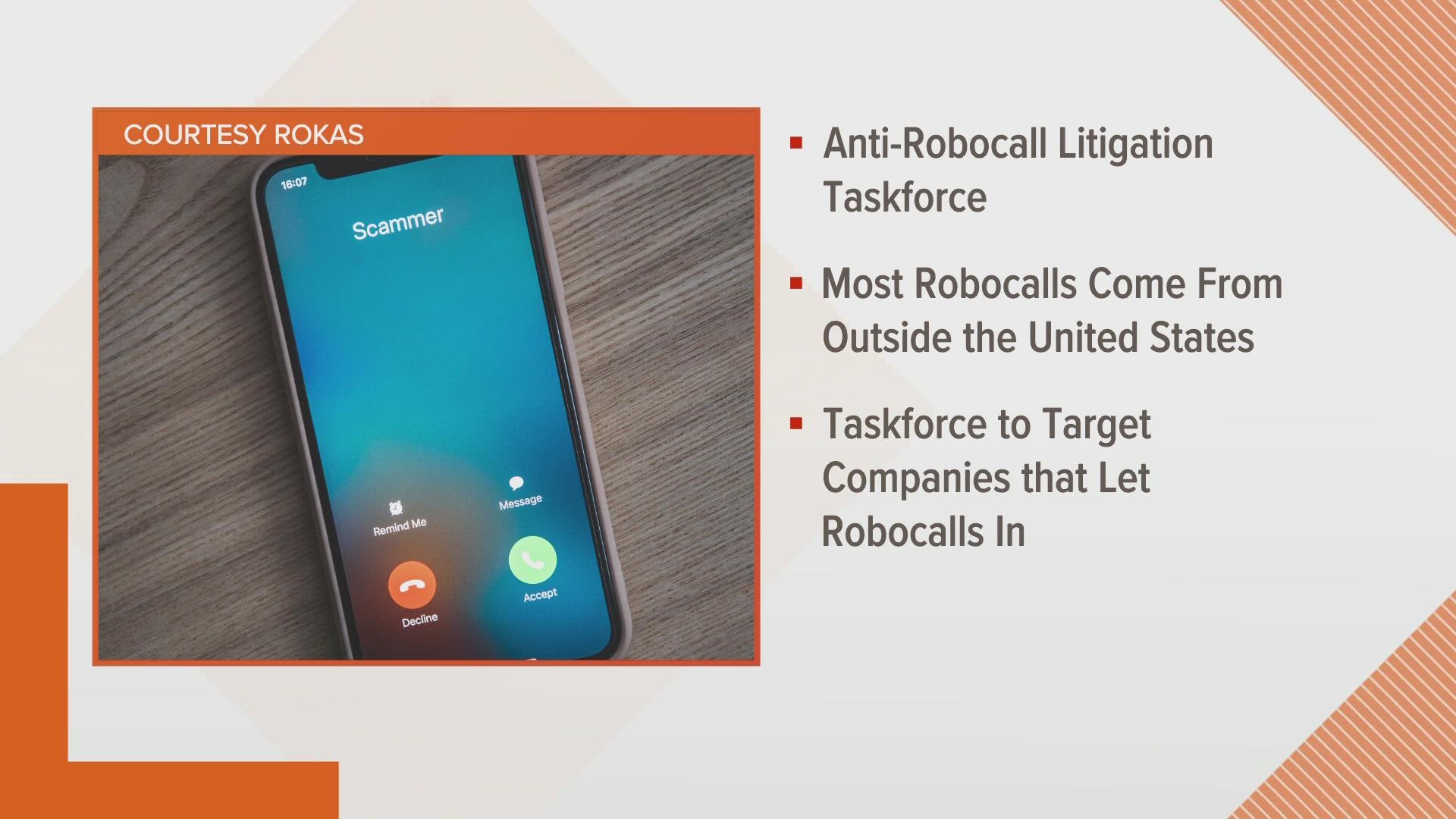INDIANAPOLIS — Everyone knows robocalls are a problem.
Half of all calls in the United States these days, are illegal robocalls. Indiana is no exception. Regulators know that most of the calls come from a few bad actors. But the scale is hard to believe.
"The guy we're [taking to court] in south Texas has sent 225 million robocalls to Indiana alone," said Doug Swetnam, chief of data privacy and ID theft at the Indiana Attorney General's Office. "There are only six million of us. And that's counting kids."
The issue is that most of the calls come from outside the United States. That makes prosecuting them tricky. And even if you can get them to stop making robocalls in one state, they can just switch to another. But to get into the country, they have to go through a third party – someone to let their calls in. That could be someone like a cell phone network.
"They are supposed to stop them, but if that isn't enforced, they may turn a blind eye to it," Swetnam said.
The activity of a robocaller generates patterns that should be easy to spot – there aren't many legitimate reasons to be making 225 million calls to Indiana. But the calls are obviously getting through, and the state of Indiana wants that to stop. So they are going after those third parties.
"First of all, our goal is to reform the bad actors. So maybe they only make legitimate calls or they go out of business," Swetnam said. "But we also want to let them know the time of maybe turning a blind eye is over."
That's why Indiana has spearheaded the Anti-Robocall Litigation Task Force. The Attorneys General of all 50 states have signed on. That way, robocallers can't leave one state and target another. It also keeps them from wasting time going after the same bad actors individually.
To start off with, the task force is going after robocallers. But they are also keeping track of spam text messages as well.
"If you get a bad text message, you can forward it to 7726 (SPAM) to report it to your cell phone provider and then they can tell us," Swetnam said.

